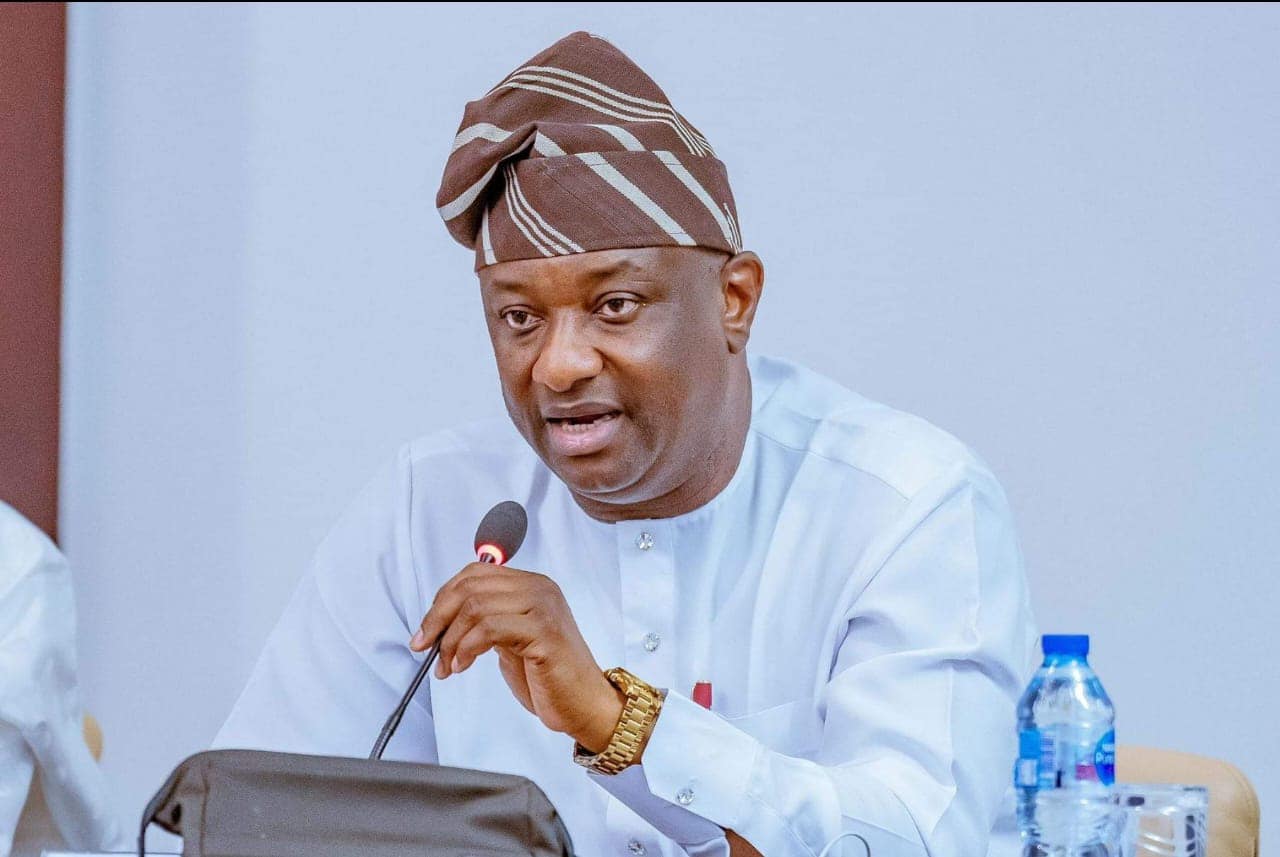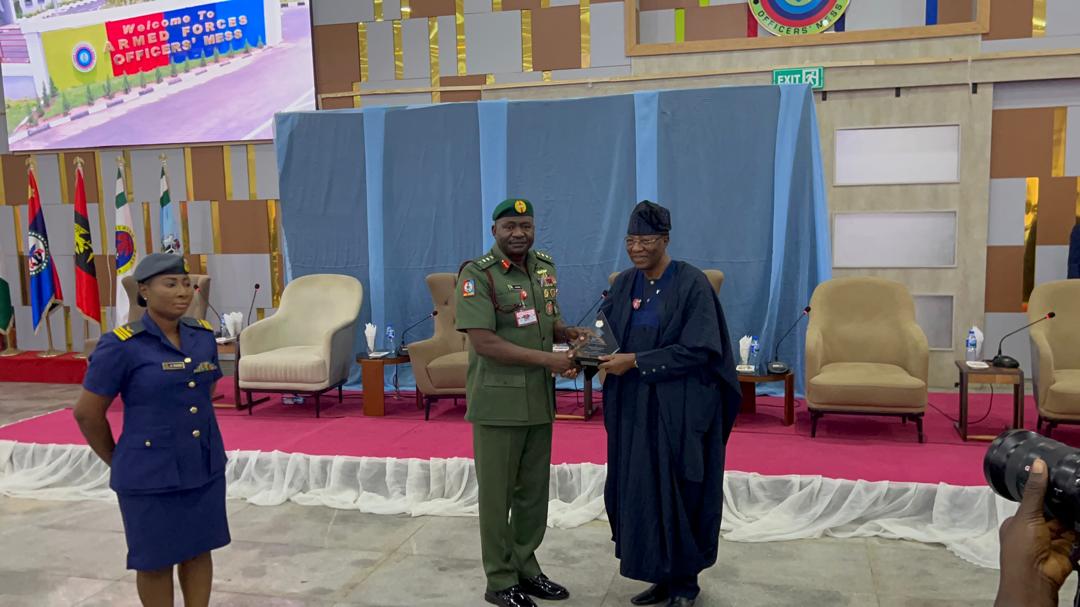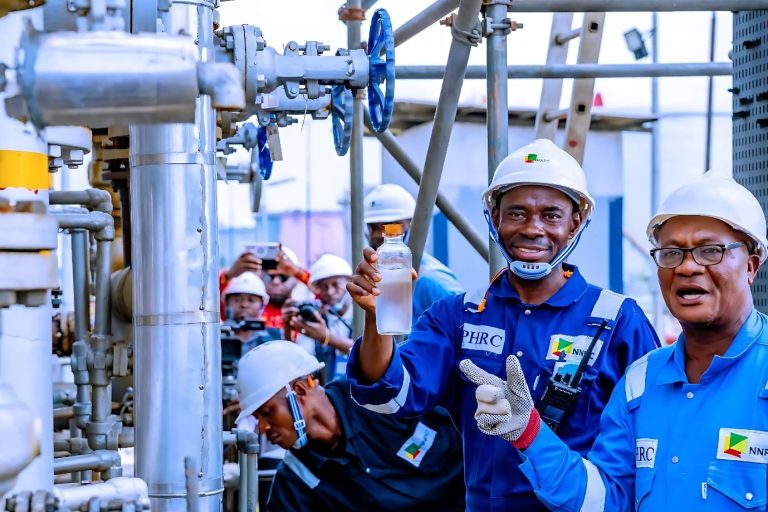After a decade-long closure, the Warri Refining & Petrochemicals Company in Delta State resumed operations on December 30, 2024, to the astonishment of everyone present at the vast refinery complex in Ekpan, Warri. The event was marked by the presence of key figures, including the Board Chairman of NNPC Limited, Chief Pius Akinyelure; Group Chief Executive Officer Mele Kyari; the Chief Executive of the Nigerian Midstream and Downstream Petroleum Regulatory Authority (NMDPRA), Engr. Farouk Ahmed; and the Managing Director of WRPC, Efifia Chu. These leaders, alongside excited workers and journalists, were on hand to witness the successful startup of the refinery’s CDU, Gas Plant, and VDU, commonly referred to as Area I.
The reopening sparked palpable excitement, with Harry Okenini, Chairman of the Delta State chapter of the Independent Petroleum Marketers Association of Nigeria, unable to contain his joy. He shared that before coming to the refinery on that day, he had first made a stop at a church to offer thanksgiving, uncertain if the news of the refinery’s revival was true.
The celebratory mood at the refinery, which has a capacity of 125,000 barrels per day, could be likened to the remarkable and rare recovery of a patient from a 10-year coma. Given the troubled history of government-owned refineries in Nigeria, the Warri refinery’s revival after such an extended closure was seen as nothing short of extraordinary. Many had believed that only privatisation could bring about a change in the fortunes of these refineries, with the argument that the government should not be in the business of running businesses.
However, despite such doubts, the Federal Government, under President Muhammadu Buhari, had committed to reviving the country’s four state-owned refineries, which collectively have a capacity of 445,000 barrels per day. This included plans for the 110,000 bpd Kaduna refinery, the 60,000 bpd Old Port Harcourt refinery, the 150,000 bpd New Port Harcourt refinery, and the Warri refinery. Despite the government’s assurance, many were sceptical, given the history of neglect, poor management, and failed multi-billion-naira maintenance projects that had plagued these facilities for years.
The Bureau of Public Enterprises had reported that the Warri refinery had never achieved full capacity utilisation, and after years of decline and shutdown in 2015 due to disrepair and crude shortages, many dismissed the government’s pledge to revamp it as political rhetoric.
Thus, when Mele Kyari, the NNPC GCEO, toured the facility on December 30, 2024, and declared, “This plant is running. We have not completed 100%,” it was a strong affirmation of the resilience and determination of NNPC under his leadership. It was the triumph of resilience in an NNPC known prior for turnaround maintenance scandals running into billions of naira.
The Warri Refinery resumed operations months after the NNPCL successfully restarted the 60,000-barrel-per-day Old Port Harcourt Refinery, which had been dormant for over 30 years. The revival of the Port Harcourt refinery was initially met with scepticism, fueled by critics who sent misleading signals to the public, casting doubt on the claims made by NNPC Ltd. that the refinery was operational.
Mele Kyari, who had encouraged stakeholders—including labour unions and federal lawmakers—to visit the Port Harcourt refinery and verify NNPC’s claims, had confidently pledged that the Warri and Kaduna refineries would soon follow suit, to the dismay of the doubters. And, despite numerous challenges, he delivered on these promises.
The revitalisation of these refineries exemplified resilience, overcoming years of neglect and adversity, and making a lasting impact on Nigeria’s oil industry. Kyari’s leadership will be remembered for slaying the proverbial dragon—the moribund refineries—that had long defied solutions. Revamping the refineries has become one of his most significant achievements, with profound and enduring effects.
Recognising the monumental task of operationalising two refineries that had been inactive for decades, the Nigeria Extractive Industries Transparency Initiative (NEITI) commended Kyari’s leadership at NNPC for its determination, transparency, and focus in delivering the first phase of the Port Harcourt refinery rehabilitation and the gradual resumption of operations at Warri.
“We commend the leadership of the NNPCL team for their resilience, dedication, and unwavering determination in executing this complex and challenging task,” said Obiageli Onuorah, the acting Director of Communication and Stakeholders Management at NEITI.
NEITI further acknowledged that the revitalisation could significantly enhance energy security, create jobs, stimulate local industries, and free up vital funds for health, education, and infrastructure.
The agency also urged NNPC Ltd. to accelerate the second phase of the Port Harcourt refinery’s rehabilitation and the ongoing work at the Kaduna refinery.
President Bola Tinubu, speaking through his Special Adviser on Information and Strategy, Bayo Onanuga, applauded NNPCL for this achievement.
“The restart of the Warri Refinery brings joy and hope to Nigerians. This milestone will further strengthen the confidence of Nigerians in the brighter future we promised. It is a remarkable way to end the year, following the earlier success with the old Port Harcourt Refinery. I am pleased that NNPCL is implementing my directive to restore all four refineries to full working condition. I congratulate Mele Kyari and his team at NNPCL for their hard work in restoring our national pride and positioning Nigeria as a hub for crude oil refining in Africa.”
Tinubu expressed confidence that, with the Warri refinery now operating at 60% capacity, the administration’s comprehensive energy plan was on track.
The President also called on NNPC Ltd. to expedite repairs at the Kaduna Refinery and the 150,000-barrel-per-day second Port Harcourt refinery to further strengthen Nigeria’s position as a global energy leader.
To avoid any further controversy about the operational status of the Warri refinery, I visited the facility myself and can confirm it is indeed functioning at 60% of its installed capacity, as declared by Kyari. The refinery is currently producing diesel, gas, and kerosene.
During my visit, I witnessed Bayo Adenrele, Refinery Coordinator at NNPC Ltd.; Isiyaku Abdullahi, EVP of Downstream at NNPC Ltd.; and Mele Kyari, the NNPC GCEO, overseeing the loading of refined products at the WRPC’s loading terminal. They tested the smart meters installed at the loading point, ensuring that product theft would no longer be an issue.
Similarly, Harry Okenini, Chairman of IPMAN in Delta State, confirmed that his members were already lifting automotive gas oil (diesel) and kerosene from the refinery.
“For now, only diesel (AGO) and dual-purpose kerosene (DPK) are being produced and loaded for consumption. We expect cooking gas, PMS, and other products to come on stream by February,” Okenini said.
Israel Omokere, National Chairman of Surface Tank and Kerosene Peddlers (a branch of NUPENG), echoed the same sentiment, confirming that the loading of AGO and DPK is ongoing, with PMS expected soon.
One noteworthy aspect of my tour of the Warri refinery was the high level of safety standards in place. The NNPC Ltd. has prioritised safety across the facility. Visitors were given thorough safety briefings and required to don safety outfits, boots, and helmets before being allowed to proceed.
Efifia Chu, the Managing Director of WRPC, conducted the tour, starting at the modern control room where all refinery operations are monitored. A second safety briefing was conducted before moving to the Area 1 section of the refinery, where strict rules were enforced, including a ban on mobile phones, to ensure safety during the collection of refined products at the CDU, Gas Plant, and VDU.
The security details of the VIPs on the tour were also enjoined to adhere strictly to safety rules to ensure the safety of all and sundry and the facility. The NNPC Ltd., WRPC management, and the safety officials on the ground deserve commendation for the safety measures entrenched and enforced at the refinery.
There have been calls for the revamping of the second Port Harcourt and Warri refineries, Kyari should heed the calls and deliver as promised.
Emmanuel Akanni, an energy analyst, writes from Lagos.

 Trending News4 years ago
Trending News4 years ago
 Others3 years ago
Others3 years ago
 Humanity3 years ago
Humanity3 years ago
 Others5 years ago
Others5 years ago
 Business10 months ago
Business10 months ago
 Business5 months ago
Business5 months ago





